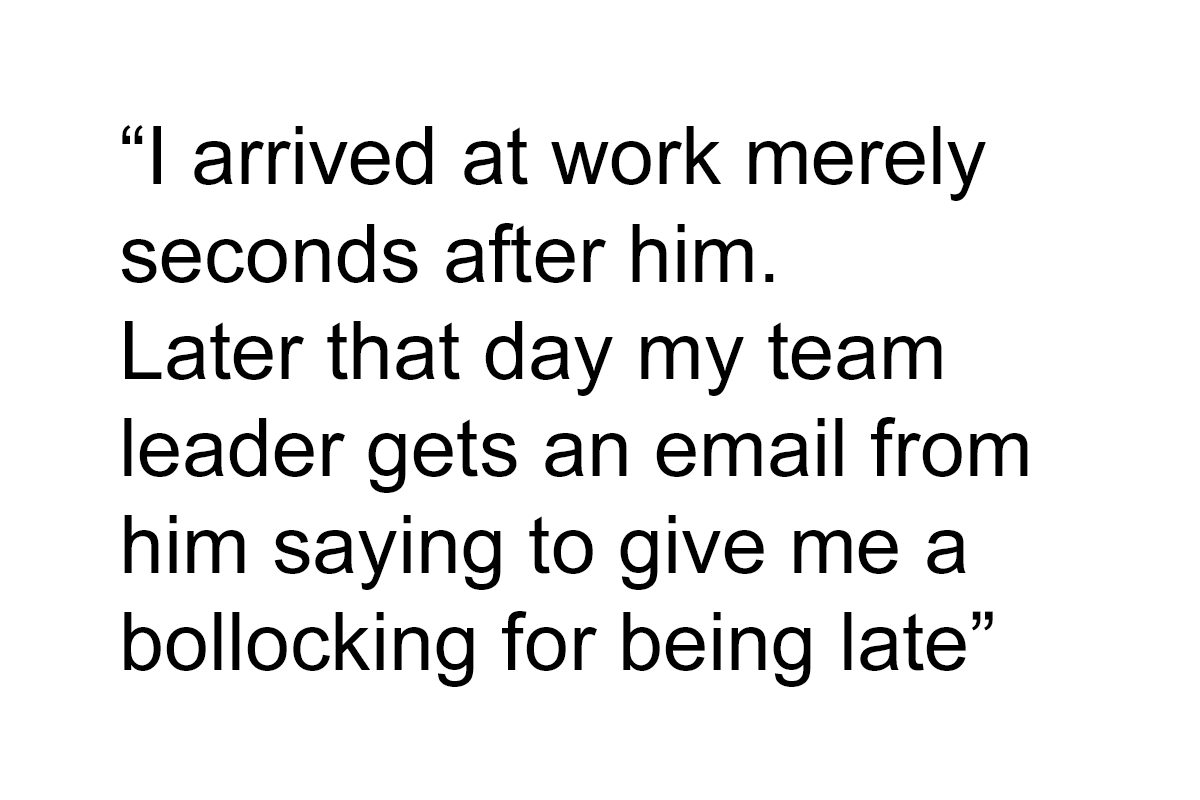
Employee Decides To Stop Working Overtime After Getting In Trouble For Being 3 Minutes Late
Last week, Reddit user J_Thompson told the platform’s ‘Malicious Compliance‘ community about the time he got back at his jerk boss, and it’s a perfect reminder that what goes around comes around to bite you in the butt.
Everything started when the power-drunk tyrant noticed him arriving at work three minutes late. For whatever reason, the boss decided it was enough to scold the employee and went out of his way to send a message.
After regularly staying late to do overtime, J_Thompson took it as an insult. (Rightfully so). So he started not only sitting down at his computer the second he had to, but also leaving it as well. And the boss noticed it when a particularly big project dropped and demanded extra effort.
This boss went out of his way to scold an employee who was 3 minutes late
Image credits: Tiger Lily (not the actual photo)
But got a taste of malicious compliance when he needed the employee to work overtime
Image credits: Craig Adderley (not the actual photo)
Image credits: Startup Stock Photos (not the actual photo)
Credits: u/J_Thompson82
When our bosses disregard all of input and focus on trivial details instead, we might start feeling as they don’t even value us. So to learn more about navigating these situations, we contacted Adrian Marsh, a career coach and regional director at Personal Career Management, which is recognised as the UK’s leading provider of bespoke career management and outplacement services for both organisations and individuals.
“A desire to work somewhere where they feel truly valued and appreciated is often listed as an important driver by [our] clients who are looking to change roles and on the other side of the coin, feeling unappreciated is often cited as a reason by clients who for leaving their last role,” Marsh said.
“Our sense of being valued as an employee can be diminished in multiple ways – e.g. a lack of appreciation or positive feedback about our work from managers, a feeling of being ‘taken for granted’, expected to consistently work beyond our contracted hours, being passed over for promotion without clarity as to why this is the case, unfairness, being expected to make sacrifices which affect our personal lives without this being acknowledged or compensated, not being awarded a payrise when perhaps others we perceive as less deserving have been given one.”
Marsh also pointed out that sometimes there can be a disconnect between what we see as being important in the way the role is conducted and what is measured and therefore noticed by the organisation. “‘Burnout’ can also be a factor affecting people who may previously have loved their jobs and see them as vital, if the workload has become unsustainable such that work is taking a toll on their physical or mental wellbeing,” he added.
According to the career coach, if employees end up disappointed with their job, they should start looking at their predicament from an analytical point of view instead of simply hoping that everything will go back to normal.
“The first step and one we can start on at any time is to develop a clear understanding of what really matters to us about work and build on these factors to develop some clear career goals,” Marsh explained. “Our careers belong to us … and we are the only ones who experience [them], so we should not expect, or want, anyone else to do this for us.”
“To improve matters within a current role, make sure that your job description and objectives are clear, that you know what is expected of you, and how success will be measured,” he continued. “It’s also important that your job description, objectives and success metrics are realistic and accurately reflect the situation on the ground. If not, it’s good to have a discussion with your manager about refining the goals and objectives or gaining extra support.”
Another good way to build up job satisfaction is what Marsh calls job-crafting. “Employees often underestimate the scope that exists for adjusting their current role,” he highlighted. “The tasks it encompasses could be adjusted, there could be scope for creating more interaction with different teams, or you might want to try rethinking the purpose of the role – something that can be very powerful. The key to success with job-crafting is finding a win-win – identifying a gain for the organization as well as yourself. That gain would likely be the starting point for any discussion with your manager.”
Once you have a clearer picture of what you wan from your career, how your current role fits within that picture and how you’d like to see it evolve, you’re in great place to have a career conversation with your manager. “This may take place as part of an annual review – even better if it can take place outside of discussions about pay and performance, thinking more specifically about your career ambitions and development aims,” Marsh said.
“Thinking slightly longer term, it’s important to recognise that achieving your goals will not just follow automatically from performing your job well. The image that our peers, colleagues, managers and customers have of us, and ensuring that the folks whose opinions or impressions can affect our job prospects know about all the good stuff we have done are arguably (and some might say unfortunately) even more important factors and recognising when change may be needed is also important.”
J_Thompson certainly learned a lot from the whole ordeal. However, I doubt that his boss can say the same.
The employee explained more about what happened as people reacted to his story
With most of them applauding OP for the way he handled the situation
259Kviews
Share on FacebookI have a US tech job, and work with teams all over the world. There is no set starting time nor end time and we are salary employees. They have learned flexibility absolutely generates more good will among the employees. They don't grumble if I take a long lunch or have a personal appointment during company hours, and I don't grumble if sometimes I have an early morning or late night meeting. It's an honor system and as long as the work gets done, everyone's happy. I will say they heavily promote work/life balance so they aren't necessarily dishonorable in this system. Their flexibility and consideration have created an environment where we are all immensely loyal, proud and take "ownership" of the work. Yes I am doing what I am getting paid to do, but I don't mind pitching in extra, when needed to help get a project over the finish line.
I'm always skeptical when reading a story like this when it ends with something like 'a few months later the who department left", 'turns out the company couldn't function without me, 'the boss/antagonist was subsequently fired.
I have actually done this. It was a terrible place to work and my leaving prompted many others to also leave. The company almost went under and still have not gotten back to how successful it was when I left and that was 11 years ago.
Load More Replies...I've made it clear to my employer I work overtime at my discretion. If there's something important or pressing that needs to be completed, I'm happy to stay in the field a little longer. You expect me to stay out late, taking time away from my family, because one of the other folks you hired isn't pulling their weight? Listen to me laugh and hang up on you.
I have a US tech job, and work with teams all over the world. There is no set starting time nor end time and we are salary employees. They have learned flexibility absolutely generates more good will among the employees. They don't grumble if I take a long lunch or have a personal appointment during company hours, and I don't grumble if sometimes I have an early morning or late night meeting. It's an honor system and as long as the work gets done, everyone's happy. I will say they heavily promote work/life balance so they aren't necessarily dishonorable in this system. Their flexibility and consideration have created an environment where we are all immensely loyal, proud and take "ownership" of the work. Yes I am doing what I am getting paid to do, but I don't mind pitching in extra, when needed to help get a project over the finish line.
I'm always skeptical when reading a story like this when it ends with something like 'a few months later the who department left", 'turns out the company couldn't function without me, 'the boss/antagonist was subsequently fired.
I have actually done this. It was a terrible place to work and my leaving prompted many others to also leave. The company almost went under and still have not gotten back to how successful it was when I left and that was 11 years ago.
Load More Replies...I've made it clear to my employer I work overtime at my discretion. If there's something important or pressing that needs to be completed, I'm happy to stay in the field a little longer. You expect me to stay out late, taking time away from my family, because one of the other folks you hired isn't pulling their weight? Listen to me laugh and hang up on you.

 Dark Mode
Dark Mode 

 No fees, cancel anytime
No fees, cancel anytime 



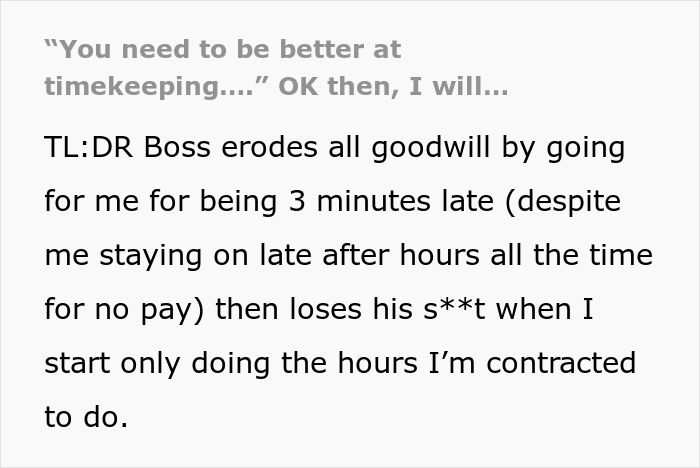



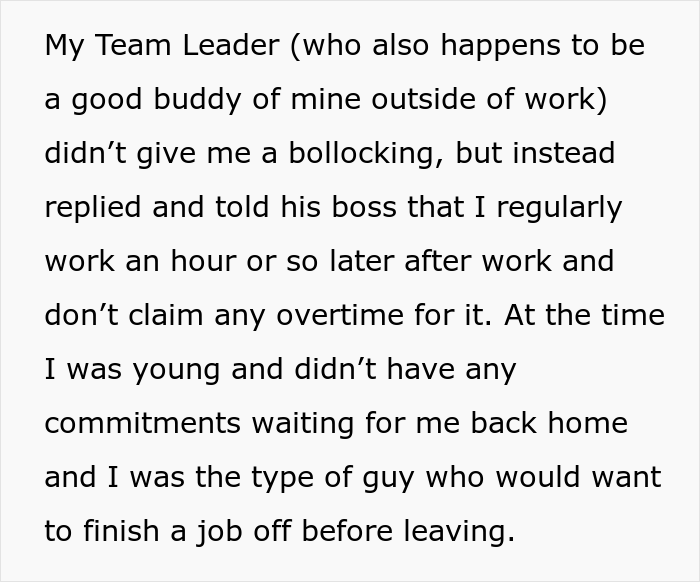
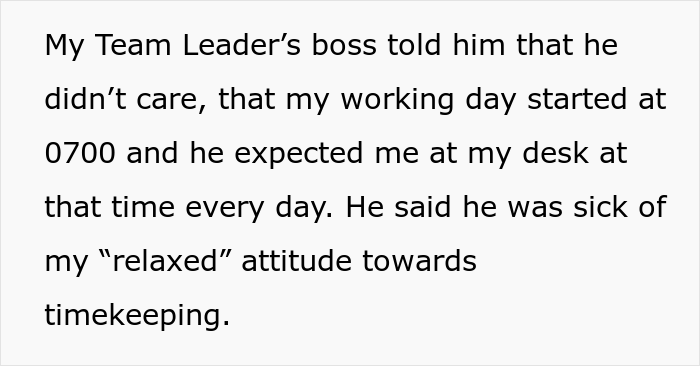
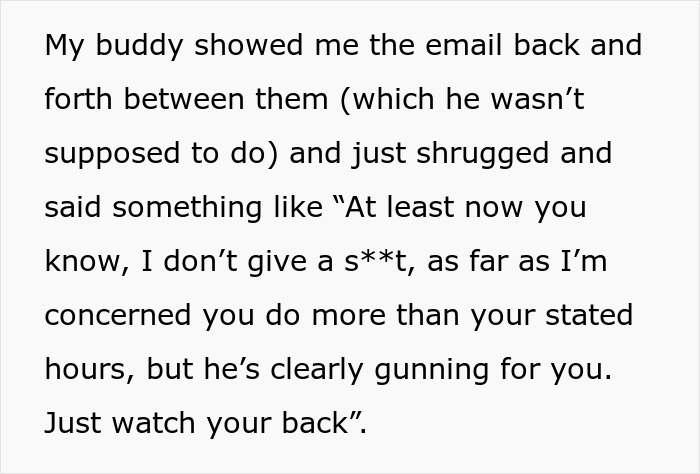
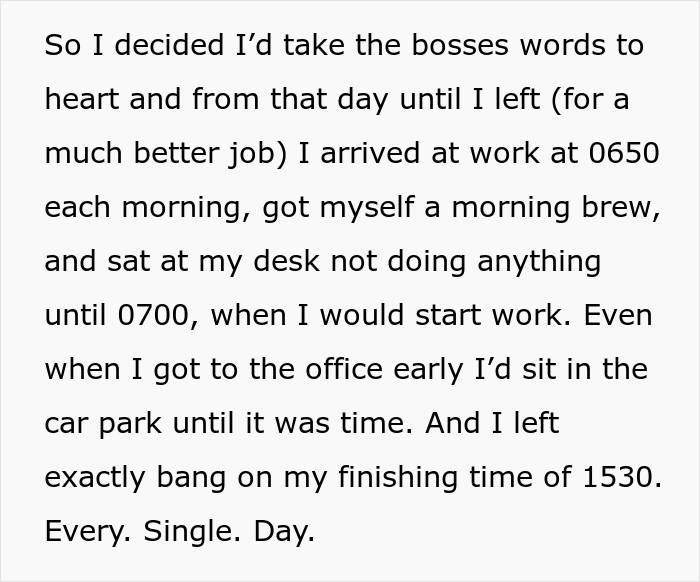
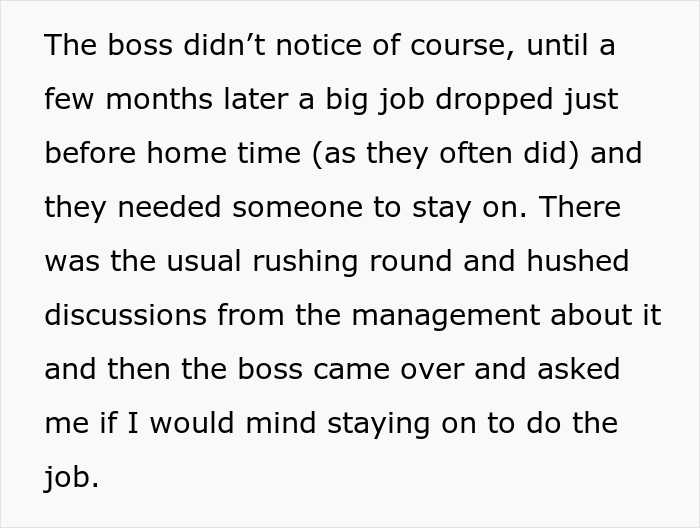
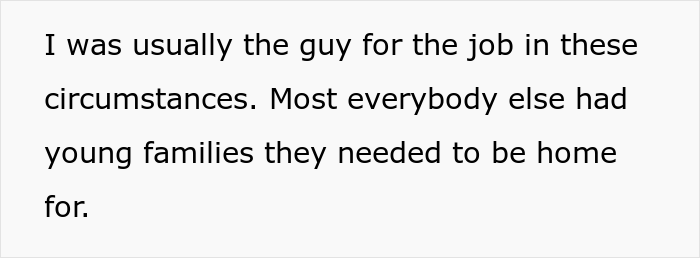

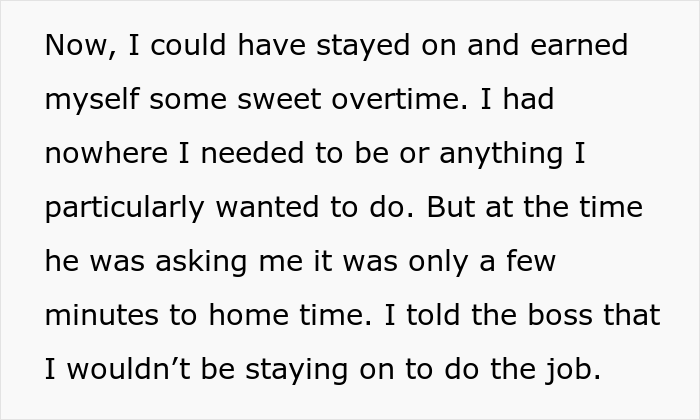
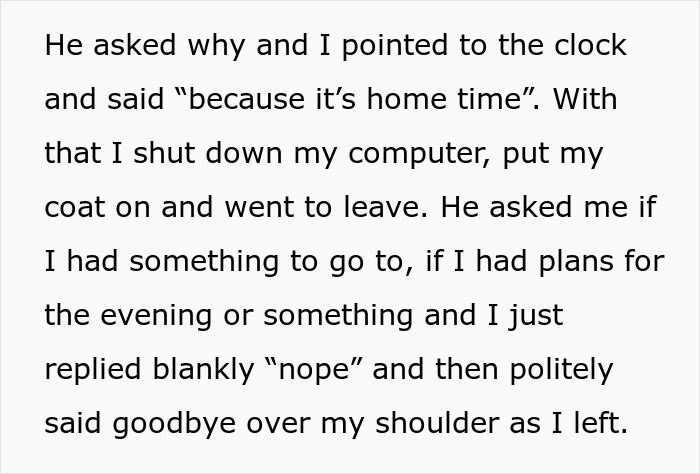

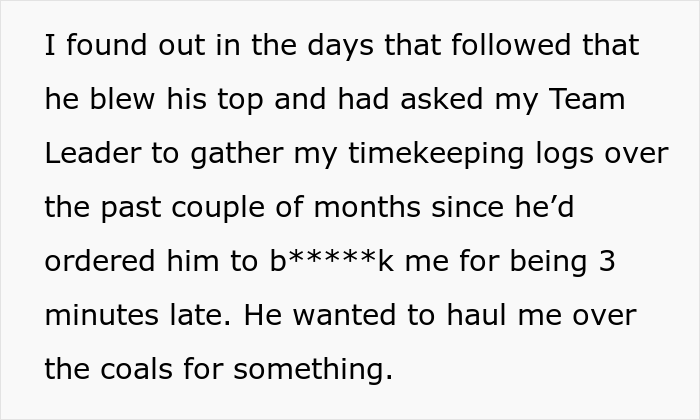
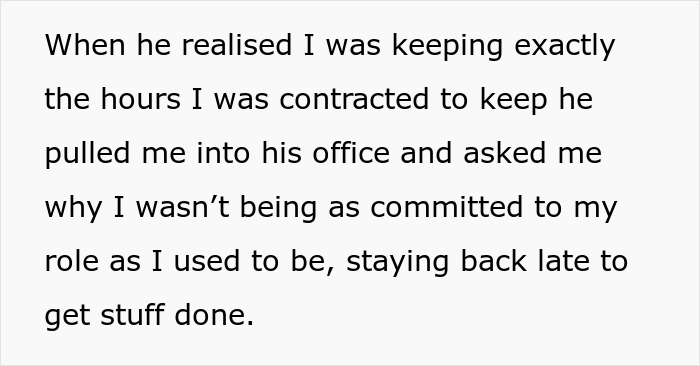

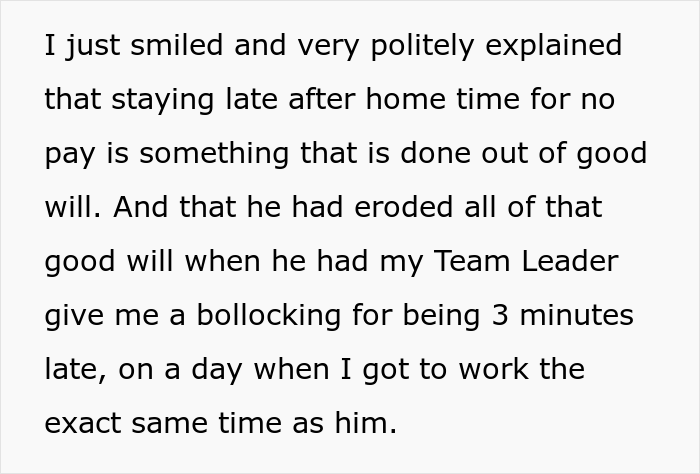
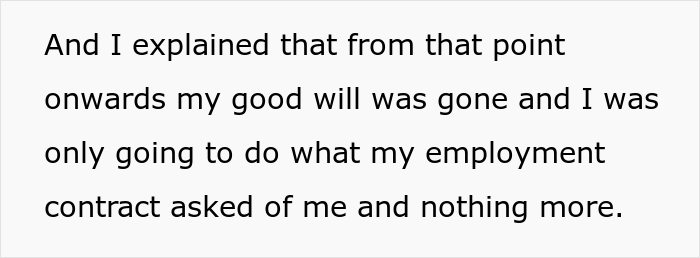
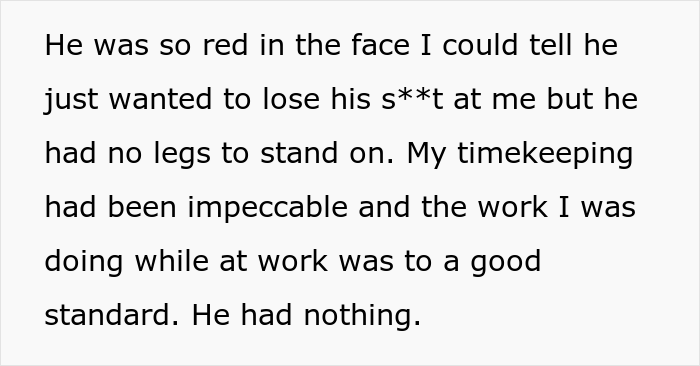


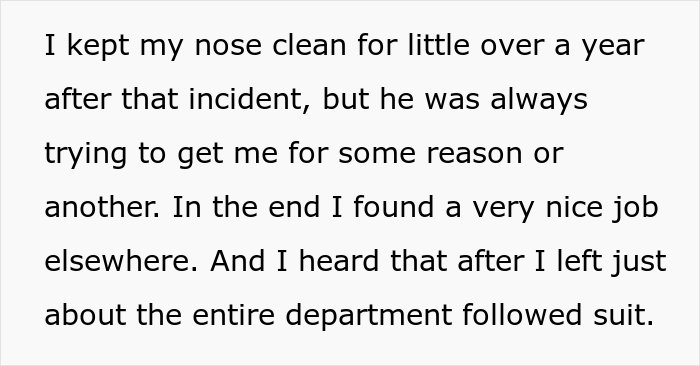
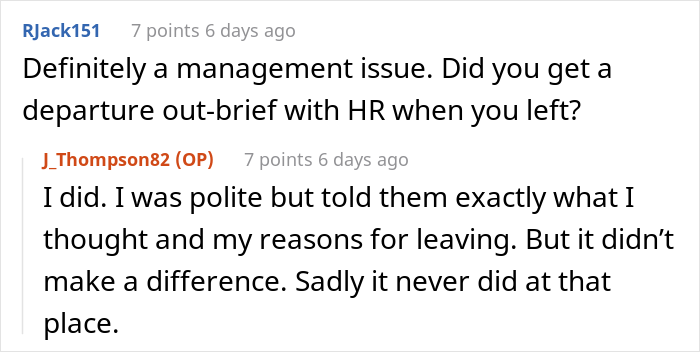

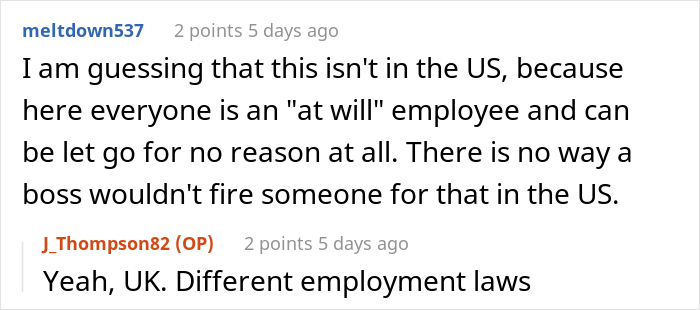
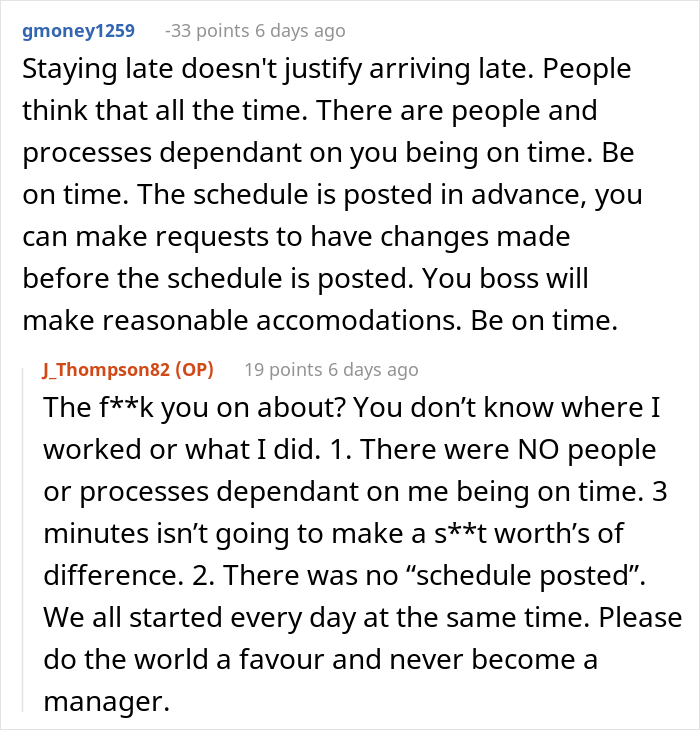




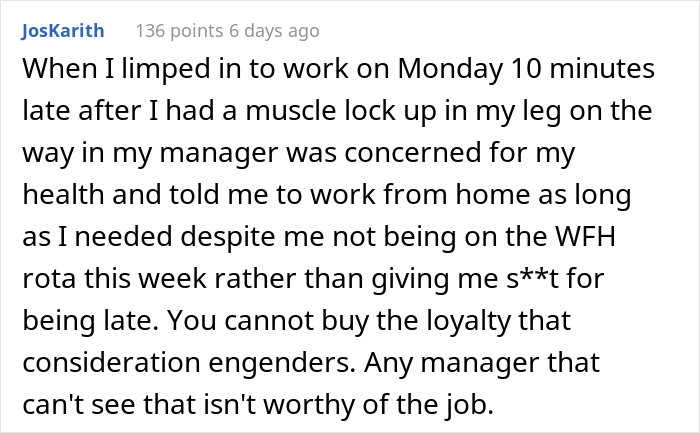



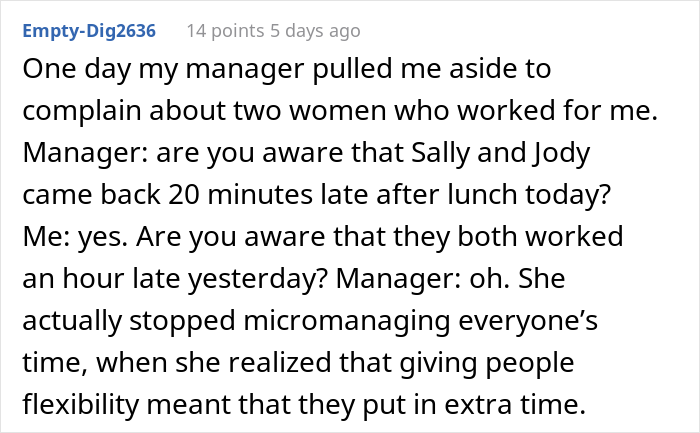
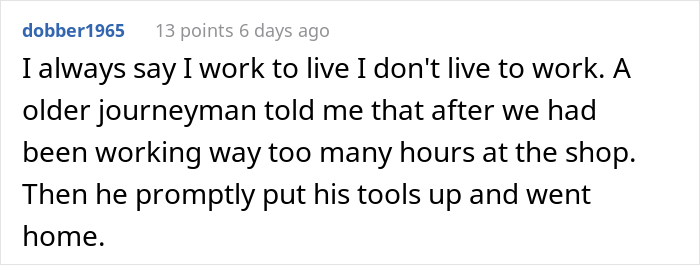




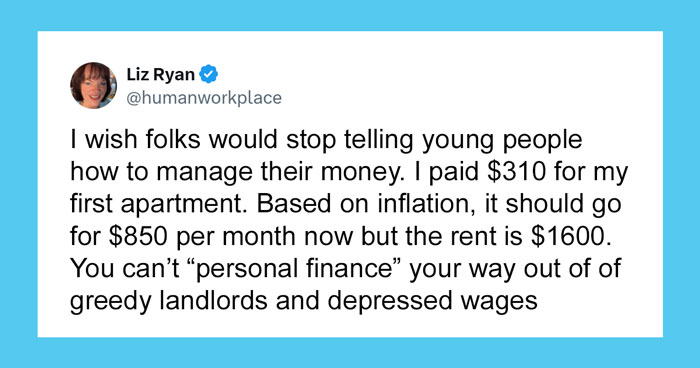



















102
31